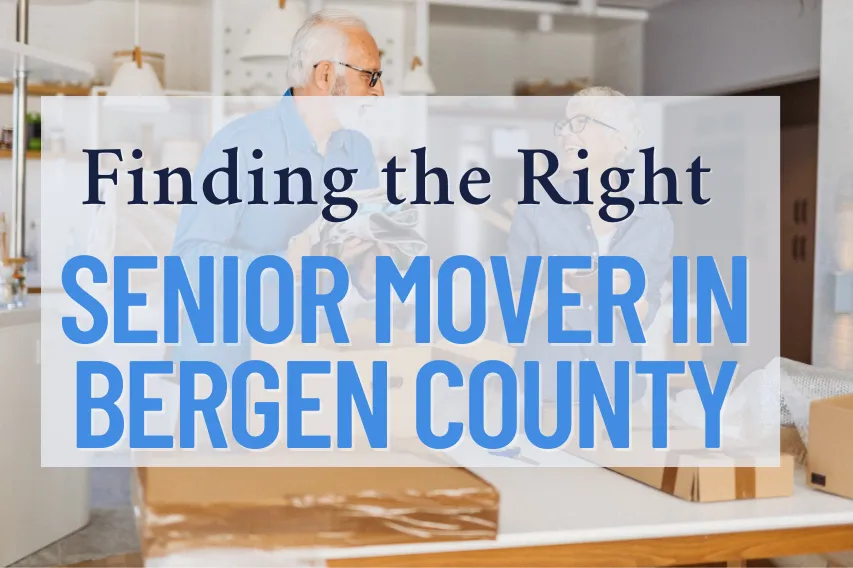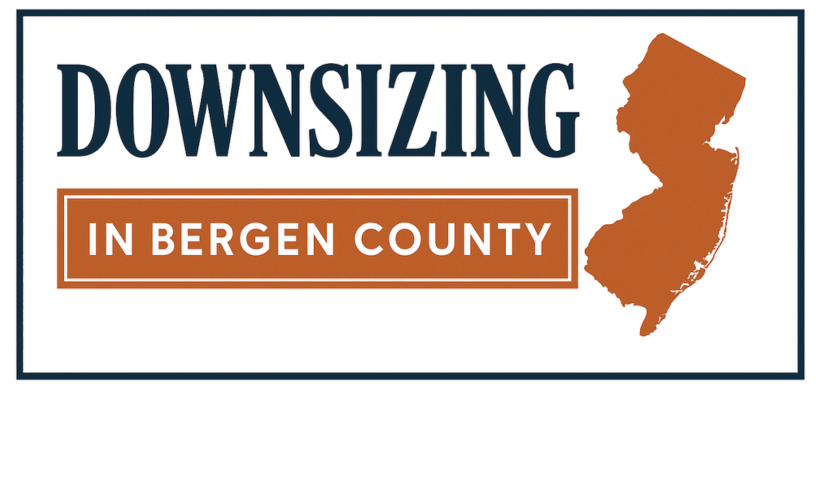
How to Choose the Right Senior Moving Company in Bergen County: A Complete Guide for Seniors & Families
Selecting the right mover is crucial for a senior relocation. Licensed and insured companies protect your belongings and your family, while movers experienced with older adults provide extra sensitivity and physical support throughout the process. You’ll want a company that specializes in senior moves or partners with Senior Move Managers, holds recognized credentials (for example, NASMM membership or ProMover designation), and offers transparent, written estimates without hidden fees. Checking online reviews, BBB ratings, and professional affiliations ensures you hire a trusted provider, while asking detailed questions about packing, handling of fragile heirlooms, insurance coverage, and backup plans gives you peace of mind.
Key Factors to Consider When Choosing a Senior Moving Company
Licensing and Credentials
First, confirm that any mover you consider is properly licensed and insured. Interstate movers must register with the Department of Transportation and comply with federal regulations; local movers should hold state or municipal licenses and carry workers’ compensation and liability insurance. For senior relocations, additional certifications—such as membership in the National Association of Senior Move Managers—signal that the company follows best practices specific to older adults.
Experience with Seniors
Moving later in life can present unique challenges: mobility issues, emotional attachment to possessions, and the need to downsize thoughtfully. Companies that advertise “senior moving” or “extra care” packages often train crews on senior sensitivity, including safe handling of mobility aids and patience with a slower pace. Senior Move Managers work alongside movers to sort belongings, create floor plans, and oversee logistics, ensuring a holistic, stress-reducing approach.
Reputation and Reviews
Online reviews and Better Business Bureau ratings provide insight into a mover’s reliability, punctuality, and customer service. Look for companies with consistently high ratings, few or no unresolved complaints, and positive comments about care and communication. Ask friends, family, or local senior centers for personal recommendations, and consult senior-specific review sites for targeted feedback.
Range of Services Offered
A full-service mover can handle everything from packing and crating fragile heirlooms to furniture assembly and disposal of unwanted items. If you need help downsizing, ensure the company either offers or partners with organizers who manage “keep, donate, sell” decisions and floor-plan creation. Verify that storage, cleaning, and even junk removal services are available or can be referred, so your family only needs to work with one trusted source.
Transparent Pricing and Contracts
Obtain at least three written estimates—ideally after an in-home survey—to compare scope of services, timelines, and costs. A reputable mover will provide an itemized contract detailing labor, mileage, packing materials, insurance options, and any extra fees. Avoid estimates that seem too good to be true, and make sure change-order and cancellation policies are spelled out in writing.
Communication and Customer Service
You’ll want a mover that responds promptly, is easy to reach, and assigns a dedicated coordinator or consultant to your move. Clear communication prevents misunderstandings about dates, times, and special instructions—particularly important when coordinating with assisted-living facilities or tight move-in windows.
Insurance and Value Protection
Standard liability coverage may only reimburse you a few cents per pound for damaged items. Ask about “full-value protection” or third-party insurance for antiques, artwork, and family heirlooms. Confirm whether your homeowner’s or rental insurance covers moving, and consider purchasing supplemental policies for high-value possessions.
Specialized Support and Certifications
Look for any affiliations that denote extra training or commitment to quality:
NASMM membership for certified Senior Move Managers
ProMover designation through the American Trucking Associations’ Moving & Storage Conference
BBB accreditation indicating ethical business practices and customer satisfaction
Questions to Ask Potential Movers
Are you licensed and insured for both local and interstate moves?
Do you offer senior-specific services or partner with Senior Move Managers?
Can you provide written references or testimonials from senior clients?
What kind of liability coverage is included, and can I upgrade to full-value protection?
How are additional fees, change orders, and cancellations handled?
Will the same crew and move coordinator be on site throughout the move?
What health and safety precautions do you follow (for example, COVID-19 protocols)?
Red Flags to Avoid
No written estimate or contract, or refusal to allow time for review before signing.
Demand for full payment upfront or high-pressure tactics to “lock in” a rate.
Poor communication, unanswered calls, or vague responses about licensing and insurance.
Estimates that seem excessively low and then balloon with surprise “change-order” fees.
Crews without background checks, bonding, or insurance—heightening risk to your possessions.
Conclusion
Choosing a senior moving company requires careful research, clear comparisons, and direct conversations. By focusing on licensed providers with senior-specific training or partnerships, transparent pricing, strong reputations, and comprehensive insurance, you’ll secure a move that is safe, respectful, and stress-minimized. Start early, ask detailed questions, and trust your instincts to find the best fit for your family’s needs.


